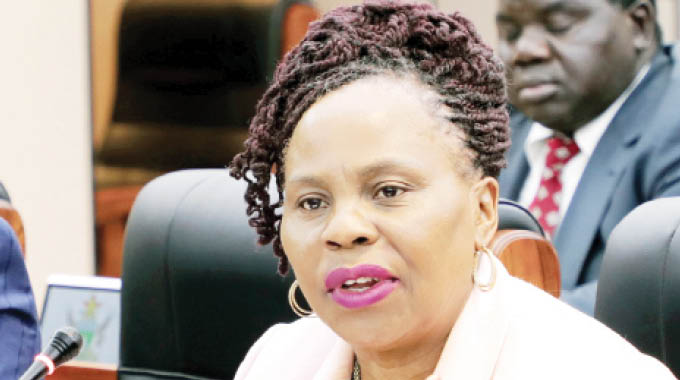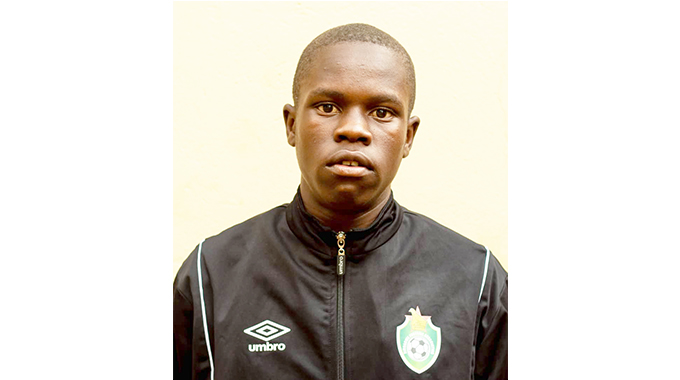Writing Covid-19: Reduced play among children gnaws at the core of regenerating African cultural assets

Pathisa Nyathi
“Zulu, zulu woza,
Sidl’ amakhomane,
Zulu, zulu woza,
Sidl’a makhomane!”
THIS used to be a familiar energetic chant in rural Matabeleland as children went out of houses to frolic in celebration of the rains that would have commenced. Both children and their parents looked forward to planting and subsequently consuming the delicious squash, often consumed with curdled or fresh milk.
Children are both a part of and a future community in the making and waiting. The kind of future community is created in more ways than one. When children engage in playing they are inculcating community values which they carry into the next generation. Children are by their very nature gregarious. They cherish to get together and, in the process, play various roles which they may play in their adult lives. As they play, they are enacting future roles with their attendant values and principles.
Fundamental to playing that they engage in is getting together. In the advent of the coronavirus pandemic where it is advised to observe social distancing this runs in the face of early social training within groups of children engaged in playing. Ultimately, it is the kind of community which is produced, one in which Africa places more emphasis on the group rather than the individual. “We are, so I am,” is the adage.
While playing may be healthy in physical and mental terms as the body and mind are exercised, through play a community recreates and regenerates itself and lives into the future.
Its life is perpetuated. When children play, they are learning to work together co-operatively with minimum friction among themselves. Playing is a collaborative engagement where participants learn to give and take, compromise and concede where and when necessary as they seek some common good out of their getting together.
As they play, they are learning to negotiate their way through sometimes conflicting and contradictory ways and perceptions. They learn to defend their positions with wisdom and grace by being sensitive to the feelings of others.
They will seek to defend their standpoints without undue rigidity and consideration of self above others. It is cardinally important that they defend their positions without hurting others to a point where the group’s continued existence is compromised and threatened.
There is no better way of learning how to get together, work co-operatively together and at all times guided by a common desire to keep together, win together and eat the fruits together. It is effortless learning whose positive results benefit the community both in the short and long terms.
The continued presence of the coronavirus pandemic thus is gnawing at the very core of African values within the communities. The modalities and strategies for effecting the desired society are being minimised in an effort to combat the spread of Covid-19. As long as group interaction is advised against the net result is that some elements of African culture will slowly be eroded.
The creation of future communities in the present is curtailed as social distancing is encouraged an arrangement that militates against getting together to play and do other group engagement. Of course, children will always be children and they may, against all advice relating to measures to curb the spread of the pandemic, do the very opposite. Besides, their intellectual maturity is still limited and they are likely to throw caution to the wind and become unwitting agents for the transmission of the dreaded Covid-19.
As children play, they sometimes get into competing groups. Competition ought to be socially regulated and negotiated to avoid long term damage to social solidarity and cohesion. Children should learn to win with grace and learn to concede defeat in a sober mood and not to become arrogant little Trumps.
Winning should not come at any cost. Fair play should be its cornerstone. The social benefits should be paramount. Children are tomorrow’s adults who will affiliate to different political movements holding different ideological ideas. In their early lives while playing they would have learnt to be tolerant and accept the results of the outcome competitions without bitterness, arrogance and self-abrogated sense of self-importance.
Selfish individuals are a bane to society. As children play in groups, competing groups sometimes they learn to submit their individualistic instincts and tendencies and idiosyncratic outbursts to the common good. Play, or getting together, cultivates and nurtures some esprit de corps, a social or community state that allows, in a collaborative sense, for the community to release maximum energy towards sustaining communities and societies.
African communities, lineages, and clans are characterised by this strong sense of togetherness which they glean from the cosmos as they observe stellar clusters, constellations and galaxies. The inspiring adage here is, “As above, so below.” What they see in heaven they seek to replicate on their cultural plain.
The heavens are beautiful and enduring. Communities are then moulded through play into some expected state in the long term. This translates to a community regenerating or recreating itself. It is a way of achieving continuity, eternity and endlessness.
When children play in groups whether it be on a competitive basis or not, there is team building. Challenging community tasks are best tackled when teams face the tasks within the context of working as teams.
Children, as they engage in play learn how to build teams, how to keep the teams motivated and work cooperatively but recognising that there are some among them who are leaders among equals whose leadership ought to be acknowledged and embraced for maximum team output from team members.
A team has a life and a spirit. When the life and spirit are infused at a very tender age it is all the better for the community. This is social investment early in life and the fruits are enjoyed in the long term.
The role of leadership within communities cannot be overemphasised. A people without leaders are like a radarless ship. The worst that can be done to a community is to deny it the emergence of leaders or destroy the existing ones. Leaders are iconic, innovative, inspiring and are able to rally support around a project or campaign. Leaders may at the same time offer brakes to a program or campaign all efforts come to naught.
Within the context of play children provide themselves with fora where they train leaders for the future. It becomes difficult for the children upon reaching adulthood to learn the ropes. Iron should be struck when still hot. New tricks are best taught to a young dog. To engage in play is to facilitate leadership training which becomes handy in future.
Our thrust here has been to give due emphasis to the need to allow children to engage in play making at tender ages as social investment of resources out of which benefits are reaped in the future. But play without getting in the rural areas with limited facilities and amenities presents a challenge.
Now the Covid-19 militates against play as children are advised and expected to observe social distancing as one of the measures to curb the spread of the coronavirus, a disrespectful disease that strikes at the core of African cultural practices and arrangement for their regeneration and perpetuation into the future.











Comments